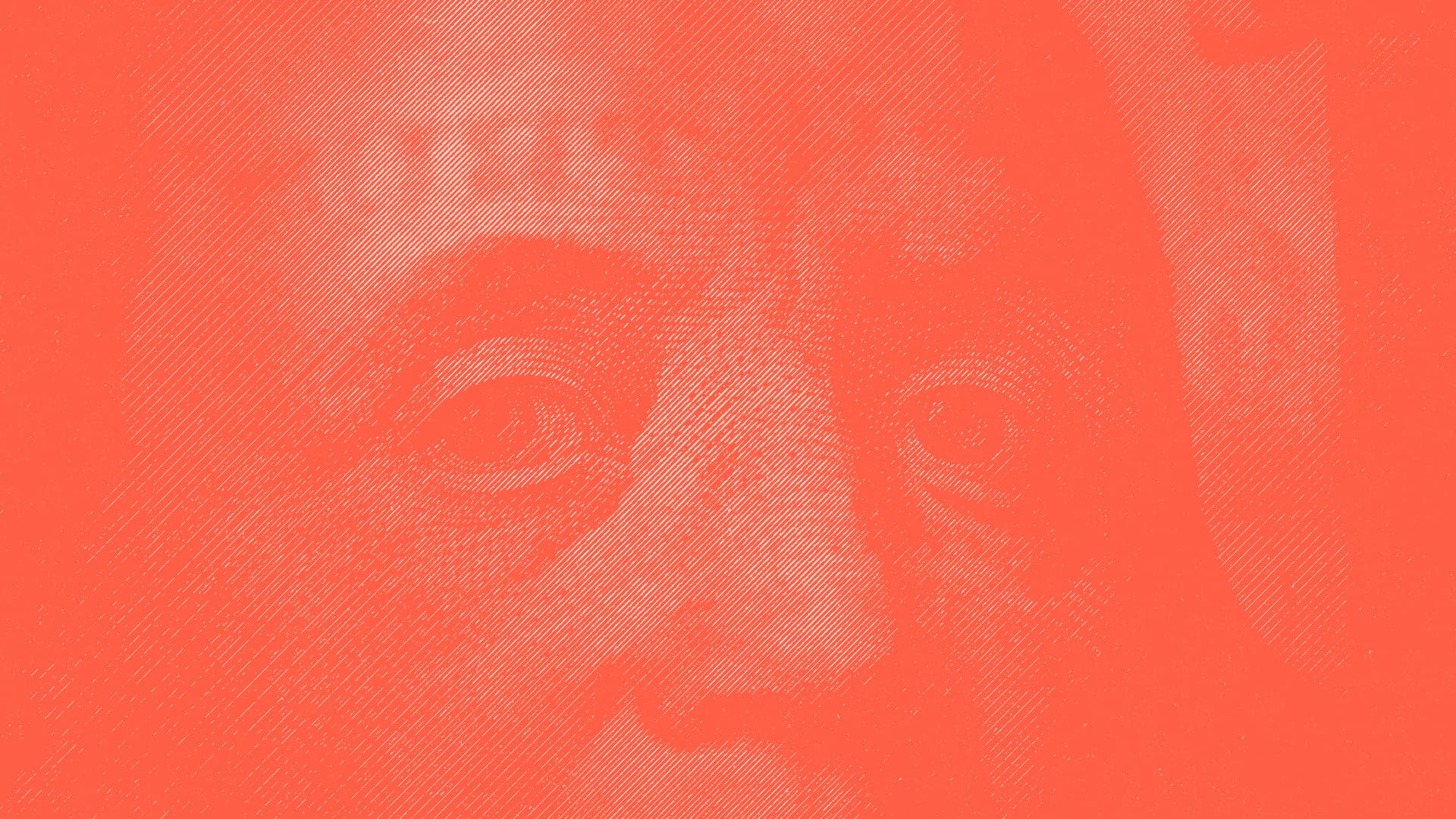Don’t invest unless you’re prepared to lose all the money you invest. This is a high‑risk investment and you should not expect to be protected if something goes wrong.
Offchain: Ready and Stable
September 29, 2022

As the US dollar pulverises the world’s fiat currencies, could stablecoins give crypto the utility it’s been seeking?
It’s been a hell of a week for the world’s forex traders. Liz Truss, newly appointed UK Prime Minister, announced that her first priority in government would be to dish out massive and unfunded tax cuts to the country’s wealthiest citizens.
The market, which, along with the rest of us, assumed Reagan-style trickle down economics had fallen out of favour together with pedal pushers and drinking while pregnant, lost its absolute mind and began pummelling the UK’s finances as if they belonged to one of the world’s less fashionable kleptocracies.
Next thing you know the pound has made an all-time low against the US dollar, joining the , , , and many more in what the cryptoverse might describe as “goblin town”. (The Australian dollar is still 30-odd per cent above its 2001 USD all-time low, so holding up quite well considering).
With inflation rampant and the global economy going down the drain, everyone wants a stack of Uncle Sam’s ol’ timey greenbacks. But traditional currency markets are fractured, inaccessible and slow. Could stablecoins be the answer?

Gimme that green
Unlike many conversations around cryptocurrency, this one isn’t taking place in the realm of the hypothetical.
Latin America is experiencing a profound cryptocurrency boom; according to Mastercard have already used crypto to make a purchase, with two-thirds of that being through stablecoins. It’s thought that more than 40% of Brazilian adults hold crypto. These are places that know how volatile a fiat currency can be.
Meanwhile, the countries with the highest traffic to peer-to-peer crypto exchanges are Kenya, Nigeria, Venezuela and Vietnam AKA places with poor banking infrastructure and robust USD black markets. In and , where inflation is running close to 100%, people turn to in-person crypto brokers to try and rescue assets from a collapsing economy.
For most developed nations, wholesale inflation and currency devaluation are phenomena last seen more than a generation ago. As a result, the buzz around stablecoins has always felt abstract: why keep your money in stables for a 2% yield when you could be trading shitcoins and going 10x? But if your currency is losing half its value in the interim, the prospect of the US dollar becomes a lot more enticing.
We know that in times of trouble cash is king. Thanks to crypto we can choose which cash that’s going to be.
Oh the irony
In crypto mythology, the US dollar has always been the ultimate symbol of fiat currency’s inherent injustices. Yet the rise of the stablecoin is predicated almost entirely on the continued supremacy of the greenback.
In truth, nothing has come close to challenging USD hegemony. In plenty of places if you can get US dollars, you generally do. Hell, one of the primary things keeping a lot of weaker currencies afloat is the fact that historically it’s been quite difficult for people in nations with poor financial infrastructure to cash out to USD – and quite risky to hold large bricks of currency under the mattress at home.
So what happens when the friction involved in that transaction vanishes? When the extortionate money-changing fees disappear? When government-mandated capital controls stop working? When you can easily use the money through the smartphone in your hand? Will we witness the bank run to end all bank runs?
Showing their stripes
This week global payments provider Stripe announced that it was introducing the ability for freelancers, creators, merchants and contractors to claim – instead of their own currency (which could take days or weeks to receive depending on the local banking system).
Obviously we shouldn’t get ahead of ourselves here. Stripe isn’t about to single-handedly upend the global payments system any time soon. But I saw that and I felt the vertiginous sense of unfolding possibility that crypto hits you with every now and again. Instant and secure transactions in a safe haven currency; if you lived in Argentina, why wouldn’t you?
Crypto has always talked about banking the unbanked. We may be starting to get a sense of what that actually looks like. And with the US dollar showing no signs it’s about to leave the rest of the world’s currencies alone, the age of the stablecoins could be at hand.
Luke from CoinJar
Don’t invest unless you’re prepared to lose all the money you invest. This is a high‑risk investment and you should not expect to be protected if something goes wrong. Take 2 minutes to learn more: .
Cryptoassets traded on CoinJar UK Limited are largely unregulated in the UK, and you are unable to access the Financial Service Compensation Scheme or the Financial Ombudsman Service. We use third party banking, safekeeping and payment providers, and the failure of any of these providers could also lead to a loss of your assets. We recommend you obtain financial advice before making a decision to use your credit card to purchase cryptoassets or to invest in cryptoassets. Capital Gains Tax may be payable on profits.
CoinJar’s digital currency exchange services are operated in Australia by CoinJar Australia Pty Ltd ACN 648 570 807, a registered digital currency exchange provider with AUSTRAC; and in the United Kingdom by CoinJar UK Limited (company number 8905988), registered by the Financial Conduct Authority as a Cryptoasset Exchange Provider and Custodian Wallet Provider in the United Kingdom under the Money Laundering, Terrorist Financing and Transfer of Funds (Information on the Payer) Regulations 2017, as amended (Firm Reference No. 928767).
EU residents: CoinJar Europe Limited (CRO 720832) is registered as a VASP and supervised by the Central Bank of Ireland (Registration number C496731) for Anti-Money Laundering and Countering the Financing of Terrorism purposes only.
On/Offchain
Your weekly dose of crypto news & opinion.
Join more than 150,000 subscribers to CoinJar's crypto newsletter.
Your information is handled in accordance with CoinJar’s .
More from CoinJar Blog
Cryptoassets traded on CoinJar UK Limited are largely unregulated in the UK, and you are unable to access the Financial Service Compensation Scheme or the Financial Ombudsman Service. We use third party banking, safekeeping and payment providers, and the failure of any of these providers could also lead to a loss of your assets. We recommend you obtain financial advice before making a decision to use your credit card to purchase cryptoassets or to invest in cryptoassets. Capital Gains Tax may be payable on profits. CoinJar’s digital currency exchange services are operated in the UK by CoinJar UK Limited (company number 8905988), registered by the Financial Conduct Authority as a Cryptoasset Exchange Provider and Custodian Wallet Provider in the United Kingdom under the Money Laundering, Terrorist Financing and Transfer of Funds (Information on the Payer) Regulations 2017, as amended (Firm Reference No. 928767).
Apple Pay and Apple Watch are trademarks of Apple Inc. Google Pay is a trademark of Google LLC.
This site is protected by reCAPTCHA and the and apply.